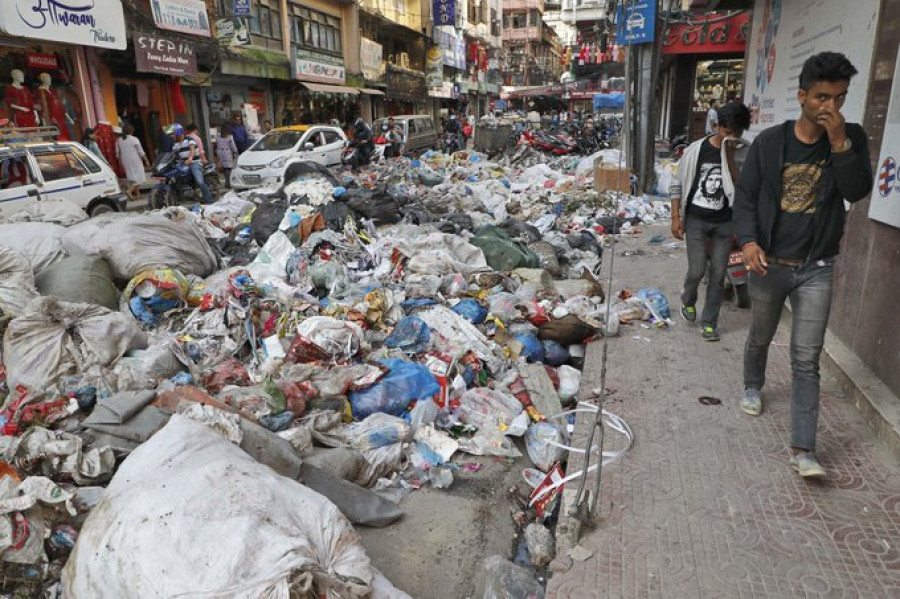Editorial
The garbage pile grows
When projects stall due to local pressure, the onus is on the local body to find an alternative site.
Waste management is a major issue worldwide, and Nepal is not far behind in this trend. Municipal waste generation in the country amounts to more than 524,000 tonnes annually. Thanks to a growing population coupled with increased consumerism, the problem is only going to get worse every year. Currently, Kathmandu Metropolitan City dumps 500 tonnes of trash at Sisdole landfill every day. The Valley is the largest generator of waste, and it has a major problem managing it. But with urbanisation increasing throughout the country, more municipalities are struggling to solve their waste problem.
While news used to centre around the Sisdole landfill site bursting at the seams, municipalities across the country have now begun to face an ever-increasing amount of waste, with no idea what to do with it. Plans to open waste treatment facilities near urban areas throughout the country have for long been dragging along in a comatose state. One such project in Rupandehi district, in the pipeline since 2010, has officially been shut down. The Asian Development Bank, the plan’s funding partner, has finally ended its support for the project. But the waste issue is not going to go away. Local governments need to fulfil their obligations as provisioned in the Solid Waste Management Act 2011, and the federal and provincial governments need to allocate more funds towards waste treatment and recycling.
For its part, the Asian Development Bank had been very patient with the Rupandehi project. The scheme had two parts related to trash: A solid waste processing centre in Butwal and a waste management plant in Siddharthanagar. The plan was to complete the project by 2015. However, the two projects, with investment pledges of Rs370 million in Butwal and Rs350 million in Siddharthanagar, faced delays from the start. Locals at the selected building sites constantly opposed construction. The project was further bogged down due to continuous disputes between locals, stakeholders and project contractors. When a deadline extension until 2018 did not result in the projects moving forward, it was only a matter of time before the funding partner pulled out.
With the lack of management and treatment facilities, and with Butwal alone producing 53 tonnes of waste a day, authorities have been dumping waste on the river banks and open areas. Locals in Hattisudh and Binapate, where much of the waste has been deposited, have also been complaining of a deterioration in crop and livestock health.
According to the Waste Management Act, local bodies, such as municipalities, are responsible for the construction, operation and management of infrastructure for the collection, treatment and final disposal of solid waste. When projects stall due to local pressure, the onus is on the local body to find an alternative site, convince the residents of the need for such projects, or relocate settlements to make room. The local body, after all, is the closest to the issue, having jurisdiction over the said locality and representing the said people. Moreover, the people have to be informed that the alternative to building management and treatment facilities near them is to let plastic and biodegradable waste build up around them, eventually causing larger ecological, aesthetic and health catastrophes.
***
What do you think?
Dear reader, we’d like to hear from you. We regularly publish letters to the editor on contemporary issues or direct responses to something the Post has recently published. Please send your letters to [email protected] with "Letter to the Editor" in the subject line. Please include your name, location, and a contact address so one of our editors can reach out to you.




 11.19°C Kathmandu
11.19°C Kathmandu














